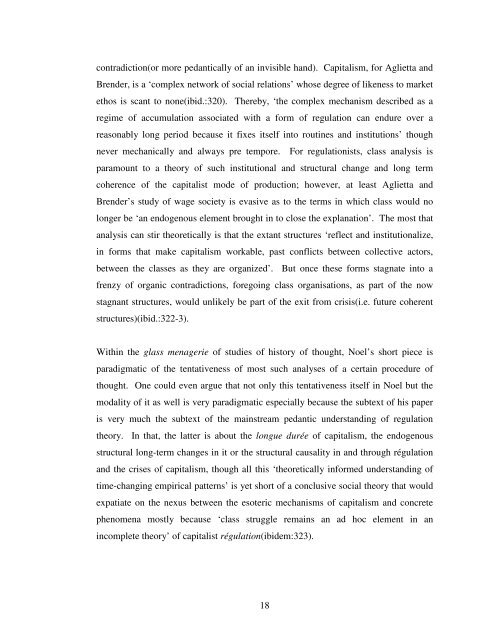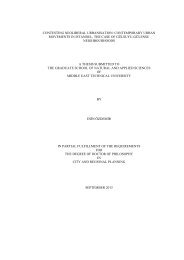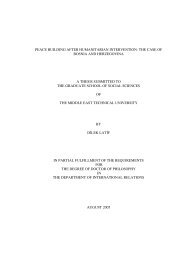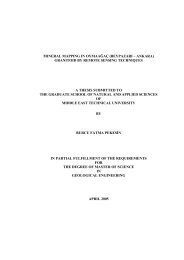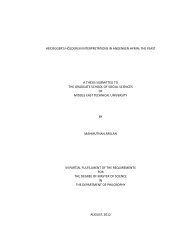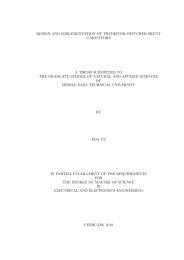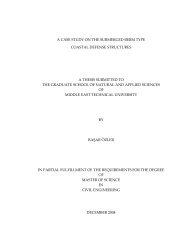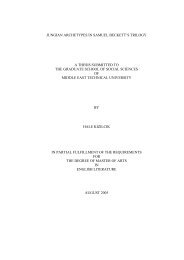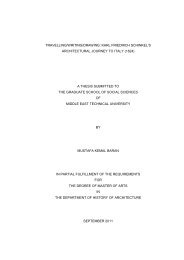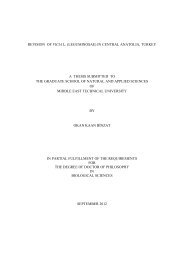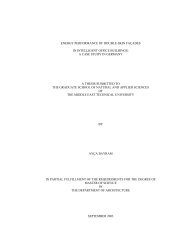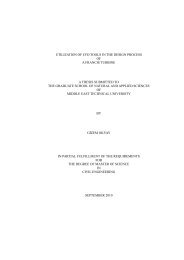View Original - Middle East Technical University
View Original - Middle East Technical University
View Original - Middle East Technical University
You also want an ePaper? Increase the reach of your titles
YUMPU automatically turns print PDFs into web optimized ePapers that Google loves.
contradiction(or more pedantically of an invisible hand). Capitalism, for Aglietta and<br />
Brender, is a ‘complex network of social relations’ whose degree of likeness to market<br />
ethos is scant to none(ibid.:320). Thereby, ‘the complex mechanism described as a<br />
regime of accumulation associated with a form of regulation can endure over a<br />
reasonably long period because it fixes itself into routines and institutions’ though<br />
never mechanically and always pre tempore. For regulationists, class analysis is<br />
paramount to a theory of such institutional and structural change and long term<br />
coherence of the capitalist mode of production; however, at least Aglietta and<br />
Brender’s study of wage society is evasive as to the terms in which class would no<br />
longer be ‘an endogenous element brought in to close the explanation’. The most that<br />
analysis can stir theoretically is that the extant structures ‘reflect and institutionalize,<br />
in forms that make capitalism workable, past conflicts between collective actors,<br />
between the classes as they are organized’. But once these forms stagnate into a<br />
frenzy of organic contradictions, foregoing class organisations, as part of the now<br />
stagnant structures, would unlikely be part of the exit from crisis(i.e. future coherent<br />
structures)(ibid.:322-3).<br />
Within the glass menagerie of studies of history of thought, Noel’s short piece is<br />
paradigmatic of the tentativeness of most such analyses of a certain procedure of<br />
thought. One could even argue that not only this tentativeness itself in Noel but the<br />
modality of it as well is very paradigmatic especially because the subtext of his paper<br />
is very much the subtext of the mainstream pedantic understanding of regulation<br />
theory. In that, the latter is about the longue durée of capitalism, the endogenous<br />
structural long-term changes in it or the structural causality in and through régulation<br />
and the crises of capitalism, though all this ‘theoretically informed understanding of<br />
time-changing empirical patterns’ is yet short of a conclusive social theory that would<br />
expatiate on the nexus between the esoteric mechanisms of capitalism and concrete<br />
phenomena mostly because ‘class struggle remains an ad hoc element in an<br />
incomplete theory’ of capitalist régulation(ibidem:323).<br />
18


